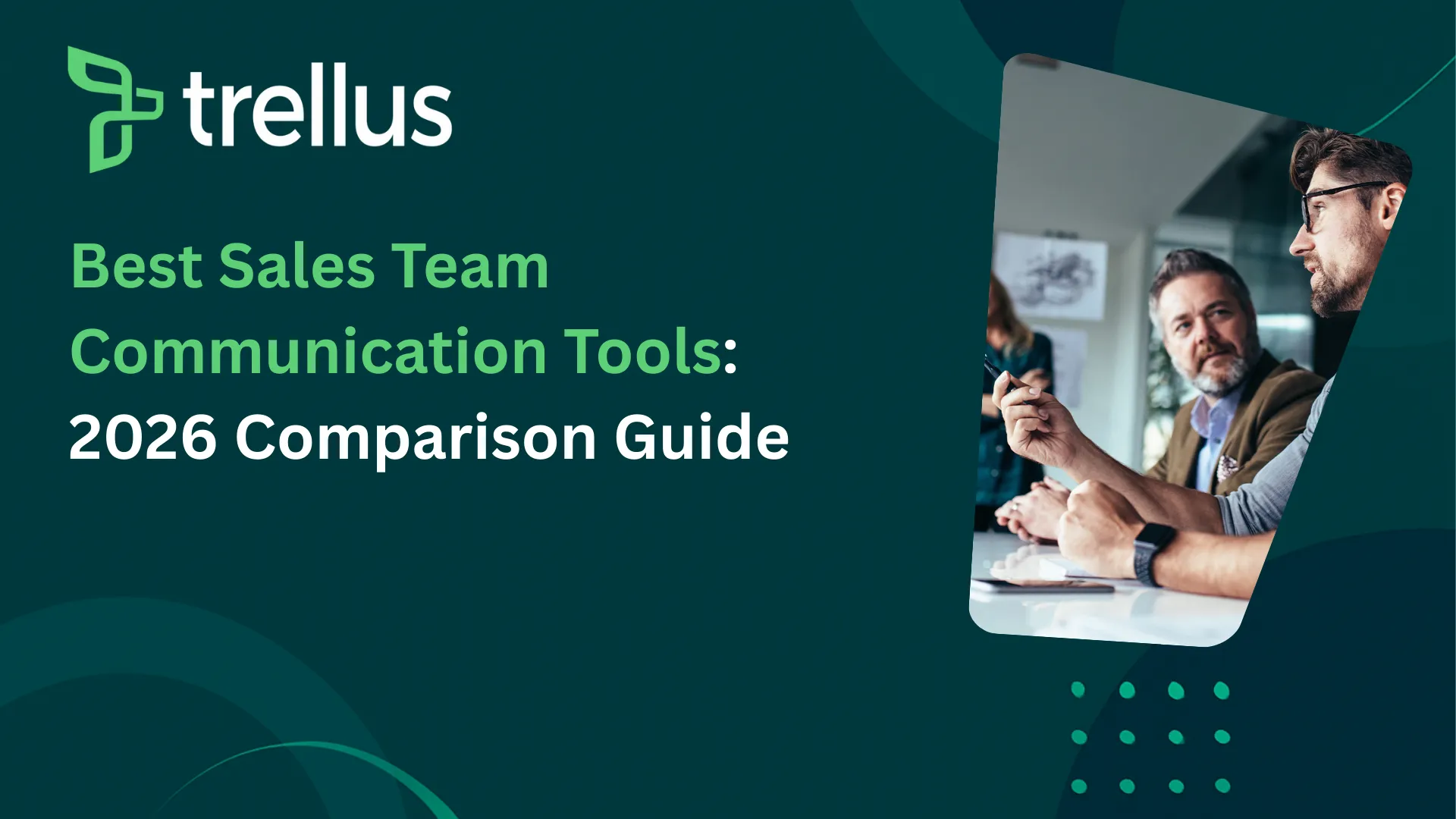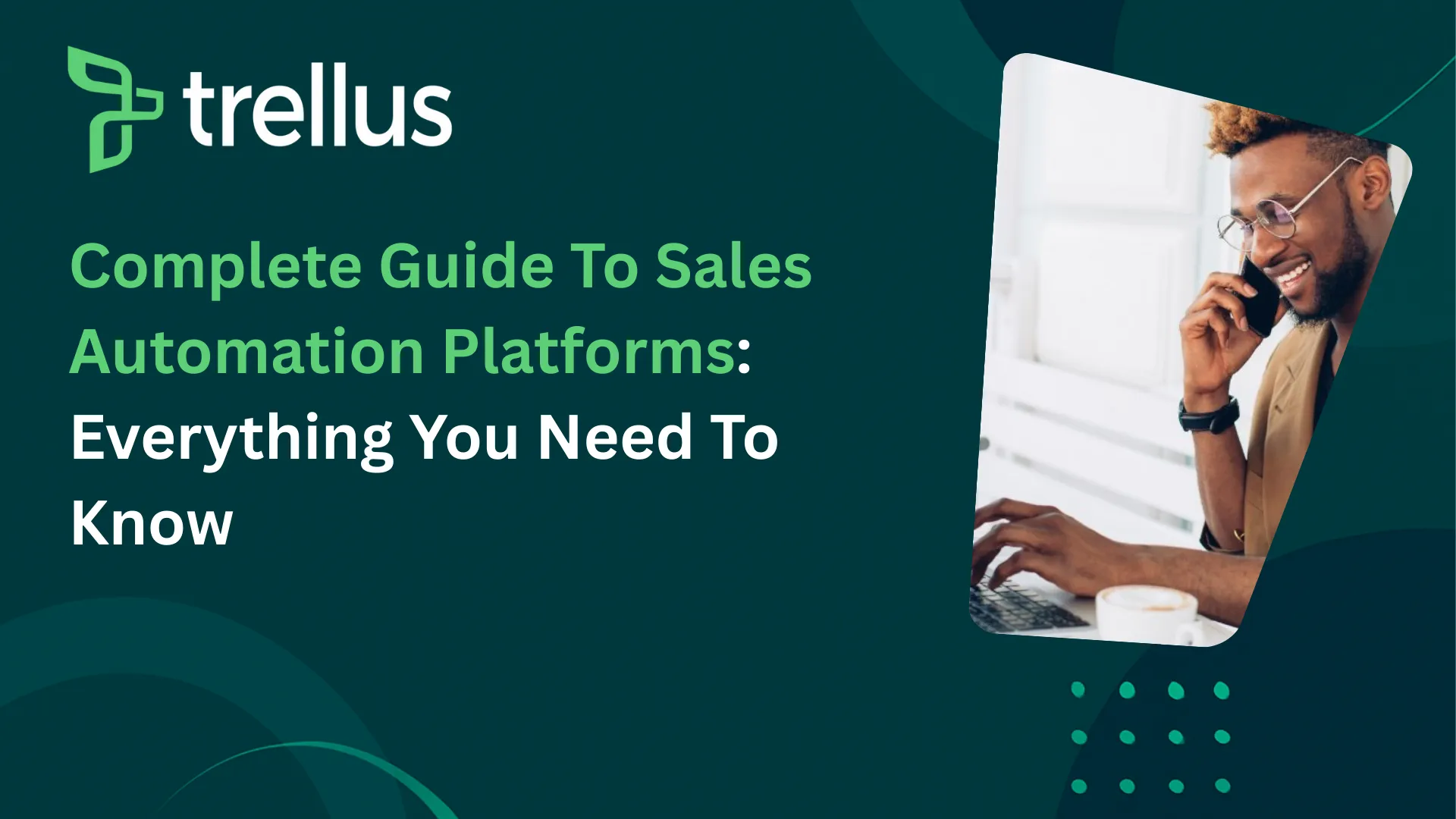
Our Top Picks


Artificial intelligence has evolved from a futuristic concept to an indispensable tool for modern sales teams. In today’s hyper-competitive market, organizations that fail to adopt AI-powered sales solutions risk falling behind.
Recent data reveals that 76% of revenue teams already use AI sales assistant software, leaving only a small fraction still relying on outdated manual processes.
The shift toward AI-driven sales tools is no coincidence. An AI virtual sales assistant enhances productivity through the automation of repetitive tasks, allowing sales reps to focus on high-value engagements.
The result?
Faster deal closures, higher conversion rates, and a more efficient sales pipeline.
This comprehensive guide will break down everything you need to know about best ai sales assistant software for small business, including:
- What an AI based sales assistant is and how it transforms sales workflows
- The key differences between conversation intelligence and AI sales tools
- Why forward-thinking sales teams are rapidly adopting this technology
- The top AI sales assistant software solutions available today
What Is an AI Based Sales Assistant?

An AI based sales assistant is an advanced software solution that leverages artificial intelligence—including machine learning (ML), natural language processing (NLP), and predictive analytics—to optimize sales processes.
In a way, these tools are designed to support sales teams by automating tasks, analyzing customer interactions, and providing actionable insights.
Also referred to as an automated sales assistant or AI virtual sales assistant, this technology handles everything from administrative work to complex decision-making. Some of the core functions include:
- Automating data entry and CRM updates – Eliminating manual logging of customer interactions
- Intelligent meeting scheduling – Coordinating calendars and setting follow-ups without human intervention
- Prospect prioritization – Identifying high-intent leads using predictive scoring
- Sales call analysis – Transcribing and extracting insights from customer conversations
- Content recommendations – Suggesting the best sales collateral based on buyer behavior
Unlike traditional sales tools, an AI sales assistant software continuously learns from interactions, refining its recommendations over time to improve accuracy and efficiency.
Why AI Sales Assistants Are Revolutionizing Revenue Teams

The adoption of AI in sales is accelerating for a simple reason: it delivers measurable results. Here’s how an AI virtual sales assistant drives performance:
1. Eliminates Guesswork with Data-Driven Insights
Sales reps often rely on intuition when deciding which leads to pursue or what content to share. An AI based sales assistant removes this uncertainty through the analysis of historical data, customer interactions, and market trends to provide precise recommendations.
For example, predictive lead scoring helps sales teams focus on prospects with the highest conversion potential, while real-time sentiment analysis during calls ensures reps adjust their approach for better outcomes.
2. Boosts Productivity Through The Automation Routine Tasks
Sales professionals spend less than 30% of their time actually selling, with the rest consumed by administrative work. An automated sales assistant reclaims this lost time through:
- Email follow-ups
- CRM data entry
- Meeting scheduling
- Call transcriptions
This automation allows reps to dedicate more effort to building relationships and closing deals.
3. Enhances Customer Interactions with Real-Time Guidance
Modern buyers expect personalized, relevant engagements. An AI sales call assistant listens in on conversations, providing real-time suggestions such as:
- Detecting customer pain points
- Flagging competitor mentions
- Highlighting objections
- Recommending tailored responses
This level of insight ensures sales reps stay agile and responsive during critical discussions.
4. Improves Coaching with AI-Powered Feedback
Sales managers no longer need to shadow every call to provide feedback. AI-driven conversation intelligence tools analyze recordings and generate performance insights, including:
- Talk-to-listen ratios
- Frequent objections encountered
- Keyword and sentiment trends
- Areas needing improvement
With these analytics, managers can deliver targeted coaching, helping reps refine their techniques and close more deals.
Conversation Intelligence vs. AI Sales Assistants: What’s the Difference?
While both technologies enhance sales performance, they serve different functions.
What Is Conversation Intelligence?
A subset of AI sales tools, conversation intelligence specializes in analyzing customer interactions. An AI sales call assistant records, transcribes, and evaluates sales calls to uncover patterns and opportunities. Key features include:
- Sentiment analysis – Gauging customer emotions during discussions
- Competitor mention tracking – Identifying when prospects reference rivals
- Objection detection – Highlighting recurring hesitations
- Call scoring – Rating reps based on best practices
In a broader sense of things, we’d say that this type of technology is invaluable for refining communication strategies and improving win rates.
How AI Sales Assistants Go Beyond Call Analysis
While conversation intelligence focuses on interactions, an AI based sales assistant offers a broader range of functionalities, including:
- Lead prioritization – Predicting which prospects are sales-ready
- Automated follow-ups – Sending personalized emails at optimal times
- Content suggestions – Recommending case studies or whitepapers based on buyer intent
- Task automation – Handling scheduling, data entry, and reminders
In short, conversation intelligence is a component of AI sales tools, but not the entirety of them.
Key Use Cases for AI Sales Assistant Software
To maximize the impact of an AI virtual sales assistant, sales teams should focus on high-value applications.
1. Smarter Lead Prioritization
Not all leads are equal. AI analyzes engagement history, firmographics, and behavioral signals to rank prospects via conversion likelihood. This ensures reps invest time where it matters most.
2. Dynamic Content Recommendations
Sharing the right content at the right time accelerates deals. AI tracks prospect interactions and suggests relevant materials—demos, case studies, or pricing sheets—to address specific needs.
3. Real-Time Sales Call Assistance
An AI sales call assistant provides live feedback during conversations, alerting reps to:
- Missed pain points
- Opportunities to upsell
- Customer hesitations
This guidance helps refine pitches on the fly.
4. Automated Follow-Ups & CRM Updates
AI tracks customer touchpoints and triggers follow-up emails, reminders, and CRM entries—keeping the pipeline moving without manual effort.
5. AI-Driven Sales Coaching
Through the analysis of call recordings, AI identifies coaching opportunities, such as:
- Overuse of filler words
- Ineffective objection handling
- Poor talk-to-listen ratios
Managers use these insights to tailor training programs.
Top AI Sales Assistant Software Solutions
Selecting the right AI sales assistant software depends on specific business needs. Here are some leading options:
1. Trellus: Overall Best AI Sales Assistant Solution For Multi-Sized Platforms

Trellus operates as a Chrome extension that integrates directly with popular CRMs like HubSpot, SalesLoft, and Apollo.
In other words, this level of unparalleled integration means sales teams can continue working within familiar platforms while gaining AI-powered enhancements to their calling processes.
Key Functionalities That Set Trellus Apart
1. Embedded Parallel Dialing for Maximum Efficiency
One of Trellus' main features is its embedded parallel dialing capability, which allows reps to initiate multiple calls simultaneously. Unlike traditional single-line dialers that waste time waiting for connections, this multi-line approach ensures no downtime between calls.
For outbound sales teams, this translates to higher call volumes, more conversations, and ultimately, increased opportunities to qualify leads.
2. Real-Time AI Coaching During Calls
The AI sales call assistant provides live guidance during conversations, analyzing tone, pacing, and objection handling. If a prospect raises concerns, the system suggests tailored responses based on proven sales techniques.
This level of unprecedented and instant feedback loop helps reps adjust their approach mid-call, improving conversion chances without requiring extensive manual training.
3. Automated Post-Call Workflows
After each call, Trellus generates:
- AI-summarized call notes
- Transcripts with key discussion points highlighted
- Diagnostic reports identifying areas for improvement
These automated insights eliminate manual note-taking and ensure follow-ups are precise and timely.
Performance Tracking for Sales Teams
Managers gain full visibility into team performance through Trellus' analytics dashboard. The system tracks:
- Call volume and connection rates
- Average handling time and talk-to-listen ratios
- Conversion trends across different scripts or approaches
These metrics help identify coaching opportunities at both individual and team levels, allowing for data-driven skill development.
Integration and Accessibility
Trellus works natively with major sales platforms, meaning no complex setup or workflow changes. The tool automatically logs calls, updates CRM records, and syncs disposition codes—reducing administrative tasks that typically consume 20-30% of a rep's day.
For businesses using OpenPhone, the integration enables automated dialing directly from the interface, further streamlining outreach efforts.
Who Benefits Most from Trellus?
This AI sales assistant delivers particular value to:
- B2B outbound teams running high-volume cold calling campaigns
- Sales managers needing better visibility into rep performance
- Remote teams requiring consistent coaching without in-person supervision
- Startups and SMBs looking for enterprise-grade tools at accessible price points
Through a robust state of the art combination of parallel dialing with real-time AI guidance, our platform addresses two critical pain points in outbound sales: wasted time between calls and inconsistent conversation quality.
In other words, it’s a results-driven and conversion-oriented system that helps teams reach more prospects while improving each interaction's effectiveness.
2. Outreach.io

Combining automation and AI, Outreach streamlines prospecting, follow-ups, and engagement tracking—making it a robust automated sales assistant.
3. Gong

Focused on revenue intelligence, Gong analyzes customer interactions to uncover trends, improve deal execution, and enhance rep performance.
4. Chorus.ai (by ZoomInfo)

Another conversation intelligence leader, Chorus provides AI-driven call insights, coaching recommendations, and deal visibility.
5. Clari

Using predictive analytics, Clari helps forecast outcomes, prioritize deals, and optimize sales workflows for maximum efficiency.
The Future of AI in Sales
As AI technology advances, AI based sales assistants will become even more sophisticated. Expect deeper integrations with CRM systems, enhanced predictive capabilities, and more seamless automation.
For sales teams looking to stay ahead, adopting an AI virtual sales assistant is no longer optional—it’s a competitive necessity. As a manager, if you were to automate routine tasks, enhance customer interactions, and provide data-driven insights, these tools could easily enable reps to sell smarter, faster, and more effectively.
The question isn’t whether to invest in AI sales tools—it’s which solution will deliver the greatest impact for your team. With the right AI sales assistant software, the path to higher conversions and revenue growth becomes clearer than ever.







